Community Engagement, Themes
“The University, in celebrating its Carnegie recognition, is beating the drum of collaborative engagement, examining what and how it can, in its policies and in its practices, be more not less. More that is not the result of addition, but the result of “leaning effectively”, realigning, relying upon the relational features of higher education’s full purposes, championing how higher learning is inextricably connected to the civic, to well-being and the forming of greater purposefulness and self-identity, to exploring the larger world and what it will take to live meaningfully in that world.”
Donald Harward, March 9, 2015
Community engagement projects provide students, faculty and staff with meaningful educational experiences. Through academic service learning, community based research, arts based research and civically engaged volunteerism, all partners gain in multiple ways, including content knowledge, civic responsibility, and multicultural awareness.
The workshop will begin with faculty, staff and student examples of community engagement projects that span the missions of the university – teaching, research, artistic expression, and service. Next, the participants will gain knowledge and skill in designing mutually beneficial and scholarly community engagement projects. At the conclusion of the workshop, each participant will be prepared to implement a community engagement project.
Following the workshops, a small group of faculty will be invited to become members of a community engagement learning community. They will each receive a $500 stipend for their participation. The faculty will attend workshops and continue creating and implementing their community engagement project during the 2015 – 2016 academic year.
Community Engagement, Critical Thinking, Engaging Difference, June 2
Date: Tuesday, June 2
Time: 10:30 a.m. – 12:00 noon
Location: Gore Hall 116
Classroom Culture for Active Learning from Summer Faculty Institute 2015
8 Essentials Article v2014
Classroom Culture PowerPoint Slides
FreeBIE Tubric
Project Design Overview Planning
Project Assessment Map
During this workshop, attendees will have an opportunity to experience a fun and engaging project as a starting point for a group discussion about active classroom learning. Each attendee will have time to consider their own class and will leave with ideas for future class projects, methods for engaging students, and tips for assessing student learning.
 Jules Bruck, Landscape Design
Jules Bruck, Landscape Design
Jules Bruck, ASLA, PLA, is Associate Professor of Landscape Design at the University of Delaware, where she teaches courses in design process, CAD, field sketching, and planting design. She also teaches landscape design courses at Longwood Gardens, Mt. Cuba and the Barnes Foundation. She is a registered landscape architect and a permanently certified member of the Association of Professional Landscape Designers. She owns and operates Evolution Landscape Design, LLC with her husband, Tony. With a love of travel and interest in experiential education, Dr. Bruck has conducted many study abroad trips to highlight design in both Brazil and Europe. Her current research interests are in design based learning and public perception of sustainable landscape practices such as designing for ecosystem services. Dr. Bruck has a Ph.D. from Texas A&M University. Visit www.julesbruck.com
Community Engagement, Engaging Difference, June 2
Date: Tuesday, June 2
Time: 1:00 – 2:00 p.m.
Location: Gore Hall 103
Perspectives on Service Learning from Summer Faculty Institute 2015
The Beat Goes On
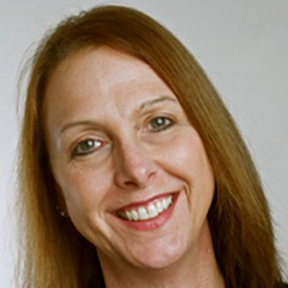 Suzanne Burton, Music
Suzanne Burton, Music
Suzanne Burton is associate professor of music education at the University of Delaware.
Student Panel Session
Student Panelists
Amanda Dell, Dietetics
Lucy Font, Elementary Teacher Education
Lindsay Yeager, Visual Communication

Moderator:
Sue Serra, Office of Service Learning
Susan Serra serves as Assistant Director of the Office of Service Learning, which she founded in 2004. She works with faculty, students, and community organizations to develop sustainable partnerships through service-learning and community-based research. She coordinates the Service Learning Scholars, a summer service immersion program and is a member of the national Summer Service Collaborative. Serra served on the steering committee of the UD Carnegie Community Engagement Elective Classification Taskforce and currently serves on the UD Community Engagement Commission. She earned her M.A. in Liberal Studies from the University of Delaware.
Community Engagement, Critical Thinking, Digital Humanities, Digital Storytelling, Engaging Difference, June 3
Date: Wednesday, June 3
Time: 10:30 – 12:00 noon
Location: Gore Hall 104
Optimize Your Professional Online Presence from Summer Faculty Institute 2015
Learn best practices for building your digital brand as an academic professional. Participants will leave this session with recommendations for a universally-identifiable Internet name, a bio sketch tailored for different social media channels, and the start on a checklist of the most important steps to take to establish your optimal professional online presence (that is to say, what people see when they google you).
 Holly Norton, Communications and Public Affairs
Holly Norton, Communications and Public Affairs
Holly Norton is a communications professional who specializes in digital strategy and social media production, analysis and marketing. Throughout her 15-year career at Gannett, Holly worked in the sports department as a copy editor and writer, launched Spark, a successful entertainment weekly focused on Delaware young professionals, and led the newsroom in social media development and strategy as the community engagement editor. As The News Journal and Delawareonline brand transitioned into a paid content business model, Holly designed and implemented a social media strategy for reporters and editors, a crisis and brand reputation management protocol and acted as a liaison between the marketplace and The News Journal staff. Holly has been recognized by Gannett corporate as a leading manager, recipient of Chairman’s Award, Individual Excellence Award, as well as received multiple Delaware Press Association awards for column writing and editing. She is also a University of Delaware alumnus, class of 1998.
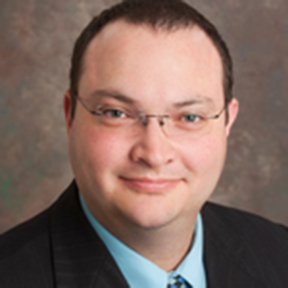 Mathieu Plourde, Academic Technology Services
Mathieu Plourde, Academic Technology Services
Mathieu Plourde is an educational technologist with IT Academic Technology Services at the University of Delaware. He holds a bachelor’s degree in graphic design (2000) and an M.B.A. (2006), both acquired at Université Laval, Quebec City, Canada. He is now pursuing an Ed.D. in educational leadership at the University of Delaware, and taught a class on social networking for educators in 2012. His multidisciplinary background (graphic, web and instructional design, IT, marketing, e-commerce, management, communication, education, etc.) gives him a unique view of teaching, learning, and user support. He is also a social media strategist and an open education advocate.
Community Engagement, Digital Humanities, Engaging Difference, June 3
Date: Wednesday, June 3
Time: 1:00 – 2:00 p.m.
Location: Gore Hall 104
Getting Our Hands Dirty: An Environmental Humanities Farm Project
An Environmental Humanities Farm Project from Summer Faculty Institute 2015
This talk will describe a new Environmental Humanities collaboration with a local organic farm, which has humanities studies planting, tending, harvesting, preparing and marketing organic produce. The project, in its first year, has been the center of a semester-long study of local and global food systems; has been a source of a number of student-written articles and essays; and is on the verge of “scaling up” with an eye on providing more local, organic food to the university and the Newark and Wilmington communities.
 McKay Jenkins, English
McKay Jenkins, English
McKay Jenkins has been writing about people and the natural world for almost 30 years. He is the author (with EG Vallianatos) of Poison Spring: The Secret History of Pollution and the EPA (Bloomsbury, 2014); What’s Gotten Into Us: Staying Healthy in a Toxic World (Random House, 2011); Bloody Falls of the Coppermine: Madness, Murder and the Collision of Cultures in the Arctic, 1913 (Random House, 2005); The Last Ridge: The Epic Story of the U.S. Army’s 10th Mountain Division and the Assault on Hitler’s Europe (Random House, 2003); The White Death: Tragedy and Heroism in an Avalanche Zone (Random House, 2000); and The South in Black and White: Race, Sex, and Literature in the 1940s (Univ. of North Carolina Press, 1999) and the editor of The Peter Matthiessen Reader (Vintage, 2000). Jenkins holds degrees from Amherst, Columbia’s Graduate School of Journalism, and Princeton, where he received a PhD in English. A former staff writer for the Atlanta Constitution, he has also written for Outside, Orion, The New Republic, The Huffington Post, and many other publications. Currently the Tilghman Professor of English, Journalism and Environmental Humanities at the University of Delaware, he lives in Baltimore with his family.
Introducing Students to the Geography of Environmental Justice: Spatial Visualization and Social Science for General Education
The Geography of Environmental Justice from Summer Faculty Institute 2015
Victor Perez presentation slides and handout (PDF format)
Studying environmental justice communities with maps allows students to see several related social phenomena, including race and socio-economic status, layered with specific geographic areas that have disproportionate levels of environmental burdens. The spatial patterns of race, socio-economic status, and pollution are not a coincidence, and have deep roots in industry, poverty, housing, race, and discrimination. This presentation will highlight one example drawn from the planned curriculum for a general education course on integrating spatial visualizations into social science analyses. The curriculum, supported by a 2014-15 IT/CTAL Innovative Transformation Grant, is being developed for a course that will allow non-geography, non-social science students an opportunity to see the power of mapping in the social sciences without a sophisticated GIS background.
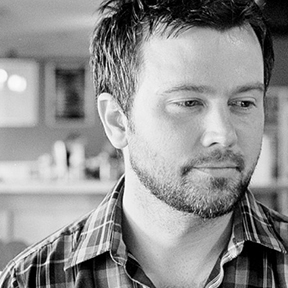 Victor Perez, Sociology
Victor Perez, Sociology
Victor Perez is an assistant professor of sociology with specializations in the sociology of risk, public health, medical sociology, and survey research. A unifying theme throughout his graduate student and early professorial career is the entwined configuration of health, risk, and society, focusing on health issues as social problems. Currently, his research projects include a survey of vaccine risk perception; citizen-science alliances dealing with legacy pollution and sea-level rise in impoverished areas; and studying how the popular media presents the issue of cancer clusters. As a faculty member in the Department of Sociology and Criminal Justice at UD, he regularly teaches quantitative sociological research methods, social statistics, and data analysis, as well as introductory sociology. Other courses that he has created include the Sociology of Diagnosis, as well as Environment and Health.
Community Engagement, Critical Thinking, Digital Humanities, Digital Storytelling, June 3
Date: Wednesday, June 3
Time: 2:15 – 3:15 p.m.
Location: Gore Hall 104
Five Minutes of Fame from Summer Faculty Institute 2015
Five Minutes of Fame is a fast-paced session where you can pick up ten exciting ideas, technologies, projects, or resources, all in five minute doses. Presentations can come from any faculty or staff participant at this year’s institute. Want to be considered for this year’s list of 10? E-mail your idea to faculty-commons@udel.edu
Doceri by Kim Graves, Interdisciplinary Science Learning Laboratory
Be untethered from the podium, as you control (and annotate!) your presentation from anywhere in the room.
TED-Ed Videos by Mu He, IT Academic Technology Services
Build a lesson around any TED-Ed Original, TED Talk or YouTube video.
Practicing Partnership by Lindsay Hoffman, Communication
Students cross divides to apply technology to social, political problems.
Flippity by Sandy McVey, IT Academic Technology Services
Easily turn a Google spreadsheet into a trivia game show.
StrengthsQuest by Michele Kane, Residence Life & Housing
StrengthsQuest – helping students reach their full potential: StrengthsQuest is an inventory which helps students understand their natural talents and ways of being. When students better understand their talents and apply these ways of being to everyday actions, they can turn the talent into a strength. This tool has been used to help students work in teams and approach challenges. Additionally, the online tools connected to this inventory help students understand how to best approach their academics, relationships, and their career search.
IT Security for Faculty by Sean Barefoot, IT Client Support & Services
Best Practices in IT Security for Faculty
Name That Tool by Becky Kinney, IT Academic Technology Services
A new tool for working with online assessment
Whiteboard Video Creation Tools by Aaron Davis, CUNY- Hostos Community College
Leveraging student Consumption of Media: Learn about media consumption trends, and how Whiteboard video tools can leverage student retention.
(Hat tip to the New Media Consortium for pioneering this session format.)
Community Engagement, Critical Thinking, Digital Humanities, Digital Storytelling, Engaging Difference, June 4
Date: Thursday, June 4
Time: 9:00 – 10:00 a.m.
Location: Mitchell Auditorium
Video Street Ethnography from Summer Faculty Institute 2015
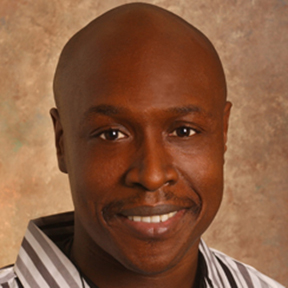 Yasser A. Payne
Yasser A. Payne is an associate professor in the Department of Black American Studies at the University of Delaware. His street ethnographic research program is centered on exploring notions of resiliency with the streets of Black America using an unconventional methodological framework entitled Participatory Action Research–the process of involving members of the population of interest on the actual research team.
His approach to diversity is centered on exploring or examining the variation of psychological identity as it relates to Black and Brown populations involved with the criminal justice system. In most instances, such populations are framed in a monolithic way and Dr. Payne through his research has found great emotional, psychological and developmental variation. Also, he aims to break down or through stereotypical barriers and images of Black and Brown people in the criminal justice system, so that transition back in the community and opportunities for upward mobility are successful. Dr. Payne’s work is centered on humanizing those in the criminal justice system and getting undergraduate and graduate students as well as faculty and/or everday residents to work more closely with those in the criminal justice system.
Community Engagement, Engaging Difference, June 4
Date: Thursday, June 4
Time: 10:30 – 12:00 noon
Location: Gore Hall 104
A Continuum from Outreach to Engagement from Summer Faculty Institute 2015
Community Engagement Project Development
Community Engagement Presentation Slides
Community Engagement Rubric
During this workshop, participants will gain knowledge about teaching, research, service and arts based community engagement projects.
A. Defining Community Engagement
- Describe Carnegie Foundation core definitions that influenced our achievement of the Carnegie designation
- Highlight examples of community engagement at UD from the Carnegie Application (utilize videos from our Carnegie Celebration)
- Explore a continuum of Community Engagement
- Differentiate outreach and engagement (via a rubric)
- Outline areas of growth identified by the Carnegie Foundation: assessment, faculty rewards, mutuality in partnerships
B. Synthesis Activity
- Participants will gather in small groups (various colleges represented in each group) and each group will be provided an example of community engagement. The group will discuss the example and identify where the example belongs on the continuum and explain why.
- Each group will present their rationale and the facilitators will lead discussion about how each example is important and how to enhance community engagement.
C. Reflection
- Ask individual participants to brainstorm an idea for a community engagement project within their discipline.
- Participants will be encouraged to join the second workshop after lunch to flesh out their example further through activities developed.
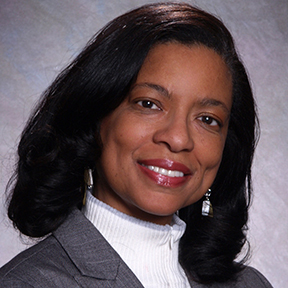 Lynette Overby, Theatre
Chair of the Community Engagement Commission at the University of Delaware
Lynette Overby, Theatre
Chair of the Community Engagement Commission at the University of Delaware
Lynnette Young Overby, Ph.D. is a Professor of Theatre and Dance, and Chair of the Community Engagement Commission at the University of Delaware. She is the author or coauthor of over 40 publications including eight books. Her honors include the 2000 National Dance Association Scholar/Artist, and the 2004 Leadership Award from the National Dance Education Organization. She is a strong believer in interdisciplinary education and community engagement. A daCi International At-Large board member, she is the archivist for the organization Dr. Overby is currently collaborating with literary historian P. Gabrielle Foreman on a long term “Performing African American History” research project. She was a member of the dance writing team for the new National Core Arts Standards.
 Jules Bruck, Landscape Design
Jules Bruck, Landscape Design
Jules Bruck, ASLA, PLA, is Associate Professor of Landscape Design at the University of Delaware, where she teaches courses in design process, CAD, field sketching, and planting design. She also teaches landscape design courses at Longwood Gardens, Mt. Cuba and the Barnes Foundation. She is a registered landscape architect and a permanently certified member of the Association of Professional Landscape Designers. She owns and operates Evolution Landscape Design, LLC with her husband, Tony. With a love of travel and interest in experiential education, Dr. Bruck has conducted many study abroad trips to highlight design in both Brazil and Europe. Her current research interests are in design based learning and public perception of sustainable landscape practices such as designing for ecosystem services. Dr. Bruck has a Ph.D. from Texas A&M University. Visit www.julesbruck.com
 Jon Cox, Art
Jon Cox, Art
Jon Cox is an Assistant Professor in the Department of Art and Project Liaison in the Interdisciplinary Science and Engineering Lab at the University of Delaware. He has served as a Board Member of the Dorobo Fund for Tanzania since 2006. Cox’s latest published work was a six-year documentary book project with hunter-gatherers in Tanzania titled Hadzabe, By the Light of a Million Fires. Cox has directed over twenty photographic study abroad programs across the globe including destinations to Antarctica, South East Asia, Tanzania, Australia, Tasmania and several countries in South America. He was a pioneer in the field of digital photography, served as the adventure photographer/writer for Digital Camera Magazine and authored two Amphoto digital photography books. Cox is the 2014 co-recipient of a National Geographic – Genographic Legacy Fund Grant to support a collaborative cultural mapping initiative with the Ese’Eja hunter-gatherers living in the Amazon basin of Peru.
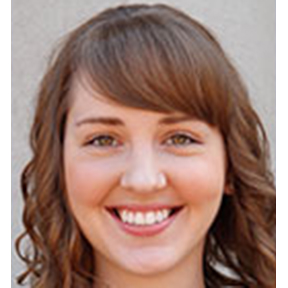 Kate Colyer, Residence Life & Housing
Kate Colyer, Residence Life & Housing
As a Complex Coordinator, Colyer supports the academic and personal growth of the nearly 600 residents residing in George Read North and South. She supervises a professional Residence Hall Coordinator and indirectly supervises a student-staff team of 14 Resident Assistants to ensure prioritization of each student’s personal, academic, and co-curricular engagement at UD. She is an instructor of the Academic Integrity Seminar in the Office of Student Conduct. Finally, she supports faculty, staff, and Peer Mentors in the implementation of three Living Learning Communities (LLC): Biological Sciences LLC, the “Discover our World” College of Earth, Ocean, and Environment LLC, and the “Thrive” Wellness LLC within George Read complex. She served on the Carnegie Community Engagement Classification Task Force and is a member of the Community Engagement Commission.
Ed Lewandowski, College of Earth, Ocean, & Environment
 Yasser Payne, Black American Studies
Yasser Payne, Black American Studies
Yasser A. Payne is an associate professor in the Department of Black American Studies at the University of Delaware. His street ethnographic research program is centered on exploring notions of resiliency with the streets of Black America using an unconventional methodological framework entitled Participatory Action Research–the process of involving members of the population of interest on the actual research team.
Steve Peuquet, School of Public Policy & Administration
 Sue Serra, Office of Service Learning
Sue Serra, Office of Service Learning
Susan Serra serves as Assistant Director of the Office of Service Learning, which she founded in 2004. She works with faculty, students, and community organizations to develop sustainable partnerships through service-learning and community-based research. She coordinates the Service Learning Scholars, a summer service immersion program and is a member of the national Summer Service Collaborative. Serra served on the steering committee of the UD Carnegie Community Engagement Elective Classification Taskforce and currently serves on the UD Community Engagement Commission. She earned her M.A. in Liberal Studies from the University of Delaware.
 April Veness, Geography
April Veness, Geography
April Veness is an Associate Professor in the Department of Geography. She specializes in applied social geography and frequently involves her students in off-campus research and service. Most recently, students in her Global at Home and Newark DE: People, Place and Politics courses participated in community-based research projects addressing issues of interest to the local community. In Georgetown, Delaware they worked with local stakeholders on a bilingual door-to-door survey about communication issues in that ethnically diverse town. In Newark, Delaware they worked with the City of Newark and members of the UD Community Engagement Commission to do preliminary outreach and an online survey inventorying campus-community partnerships. In each of those projects students presented their findings to the community in formal reports and presentations.
Community Engagement, Engaging Difference, June 4
Date: Thursday, June 4
Time: 1:00-3:00 p.m.
Location: Gore Hall 104
Creating Scholarly Community Engagement Projects from Summer Faculty Institute 2015 hosted by UD Capture
At the conclusion of this workshop, participants have created a mutually beneficial community engagement project.
Following the workshops, a small group of faculty will be invited to become members of a community engagement learning community. They will each receive a $500 stipend for their participation. The faculty will attend workshops and continue creating and implementing their community engagement project during the 2015 – 2016 academic year.
A. Sustainable Costal Communities – How to Develop Community Engagement at UD (15-20 minutes)
- Julie Bruck and Ed Lowendowski will share their experience developing, implementing, assessing, and disseminating this community engagement project.
- Ensure they highlight steps along the checklist we will provide for how to create community engagement experiences as well as describing the benefits their time and investment in this experience has had on their career
B. Application Activity (45 minutes)
- Participants will utilize a worksheet to walk them through essential steps for developing a community engagement project that aligns with the Carnegie Foundation definitions. Commission members will travel the room to assist faculty and staff as they work through the worksheet.
- Ask participants to move into small groups of 2-3 people to share the community engagement project they have developed through the worksheet. Commission members will travel the room to assist faculty and staff through their conversations.
C. Concluding Remarks (10 minutes)
- Describe investment needed to be successful in developing community engagement projects. Evaluate whether this is the right time in your career to invest in this model of teaching/research.
- Discuss resources that exist to assist faculty and staff moving forward in developing community engagement projects.
- Review all the benefits this form of teaching/research has for faculty













